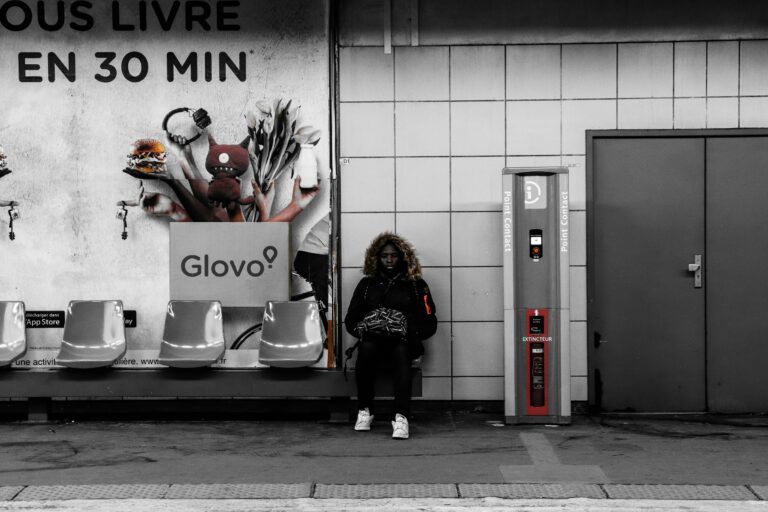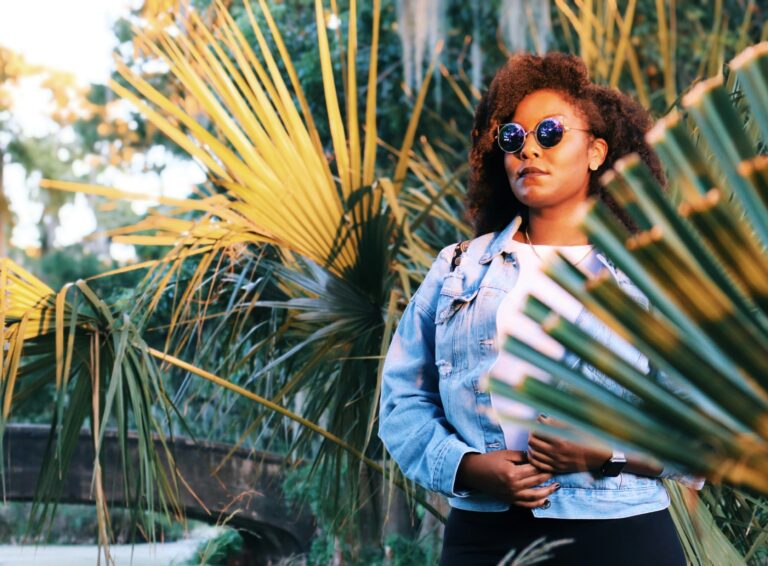Explore the benefits of 100% cotton basics, how they align with sustainable fashion trends, and where to find affordable, real cotton clothing for everyday comfort.
100% Cotton Basics: Where Comfort Meets Sustainable Fashion

In a world dominated by fast fashion and synthetic fibers, more consumers are making the switch to 100% cotton basics—not only for their comfort but also for their alignment with sustainable fashion trends. If you’re looking for real cotton clothing that’s soft, breathable, and eco-conscious, this guide breaks down everything you need to know.
We’ll cover:
- Why cotton basics are making a comeback
- How they align with sustainability goals
- Where to find affordable and soft cotton clothes
- The best sustainable fashion brands offering cotton-only options
- What to look for in truly ethical cotton fashion
Contents
Why Choose 100% Cotton Basics?
Cotton basics—think t-shirts, tanks, leggings, and underwear—have always been wardrobe essentials. But the return to 100% cotton clothing marks a shift toward mindful purchasing.
Benefits of Cotton Clothing:
- Breathable and skin-friendly – Great for sensitive skin and warm weather
- Durable – Quality cotton lasts longer than blends with synthetics
- Biodegradable – Unlike polyester, cotton decomposes naturally
- Comfort-first – Known for its natural softness and ease of wear
If you’ve ever worn soft cotton clothing straight out of the wash, you already know: nothing feels better against the skin.
Cotton Basics and Sustainable Fashion Trends
The rise of sustainable fashion trends is driving interest in cotton-only clothes—but not just any cotton. What matters is how the cotton is grown, processed, and dyed.
Sustainable Cotton Includes:
- Organic Cotton – Grown without harmful pesticides
- GOTS-Certified Cotton – Ensures environmental and social criteria
- Recycled Cotton – Uses less water and energy than virgin cotton
- Non-toxic Dyes – Safer for your skin and the planet
By choosing real cotton clothing from responsible brands, you’re contributing to a fashion system that values people and the environment.
Are Cheap Cotton Clothes Still Ethical?
Yes—cheap cotton clothes can be ethical, but it depends on the brand. Many sustainable fashion brands now offer affordable cotton basics without cutting corners on ethics or quality.
Things to Look for:
- Transparent supply chain
- Certifications (e.g., GOTS, OEKO-TEX)
- Fair wages and safe working conditions
- Minimal or recyclable packaging
Spending less doesn’t have to mean compromising your values.
Best Sustainable Fashion Brands for Cotton Basics
Here are some well-known and emerging sustainable fashion brands that specialize in or offer strong 100% cotton collections:
1. PACT
- Known for: Affordable organic cotton basics
- Certifications: GOTS, Fair Trade
- Best for: Underwear, tees, sleepwear
2. Kotn
- Known for: Ethically made Egyptian cotton pieces
- Impact: Builds schools in cotton-farming communities
- Best for: Women’s and men’s cotton basics
3. Organic Basics
- Known for: High-quality essentials
- Focus: Sustainability across the entire supply chain
- Best for: T-shirts, underwear, activewear
4. Everlane
- Known for: Radical transparency and premium cotton
- Popular: Supima cotton tees and basics
- Best for: Wardrobe staples at accessible price points
5. The Good Tee
- Known for: Organic and traceable cotton basics
- Ideal for: Supporting fair trade and ethical farming
Cotton Basics for Women: Styles & Essentials
When shopping cotton basics for women, look for versatility and layering potential. Essentials often include:
- Classic crew or V-neck tees
- Ribbed cotton tanks
- Soft cotton leggings or lounge pants
- Cotton underwear and bralettes
- Button-up cotton shirts for everyday wear
Soft cotton clothing should feel good, look timeless, and hold up through regular wear.
How to Identify Real Cotton Clothing
With many labels misleading consumers, here’s how to spot authentic 100% cotton garments:
- Read the care tag – It should say “100% cotton”
- Feel the fabric – It should feel breathable and soft, not shiny or stretchy like synthetics
- Look for certifications – GOTS or OEKO-TEX indicate fabric safety and sustainability
- Avoid vague terms – “Cotton blend” or “natural fabrics” often mean less than 50% actual cotton
FAQs
Is 100% cotton better for the environment?
Yes—when grown responsibly, cotton is renewable and biodegradable. Organic or certified cotton significantly reduces water use and chemical runoff.
Are there stylish 100% cotton basics available?
Absolutely. Many sustainable fashion brands now offer elevated, minimalist basics perfect for everyday wear and layering.
Is cotton suitable for all seasons?
Yes. Cotton is breathable for summer and can be layered during colder months. Look for midweight or brushed cotton in winter.
What are 100% cotton basics?
100% cotton basics are essential wardrobe items—like t-shirts, tank tops, and underwear—made entirely from pure cotton without any synthetic blends.
Are 100% cotton clothes considered sustainable?
Yes, especially when sourced from organic or responsibly farmed cotton. They are biodegradable, breathable, and can be produced with lower environmental impact.
What makes 100% cotton basics a good choice for daily wear?
They are breathable, soft on the skin, hypoallergenic, and easy to wash—making them ideal for everyday use, especially in warm or sensitive skin conditions.
Is cotton always an eco-friendly choice?
Not always. Conventional cotton farming can be water-intensive and pesticide-heavy, but organic cotton is a much more sustainable alternative.
How can I tell if cotton basics are truly 100% cotton?
Check the garment label for fiber content. Look for third-party certifications like GOTS (Global Organic Textile Standard) for extra assurance.
Are there sustainable fashion brands that sell only cotton clothes?
Yes. Brands like Pact, Kotn, and Colorful Standard offer collections made exclusively or primarily from 100% cotton or organic cotton.
Where can I find affordable 100% cotton basics?
Look at sustainable fashion retailers during sales, or explore budget-friendly ethical brands offering basics under $30 made from organic or recycled cotton.
Are cotton basics biodegradable?
Yes. If untreated with synthetic dyes or finishes, 100% cotton garments will naturally break down in composting environments.
Do cotton-only clothes last longer than blended fabrics?
They can, especially if made with quality cotton and cared for properly. Avoiding high heat in the dryer can extend their life.
Are cotton basics suitable for people with sensitive skin?
Yes. Cotton is naturally hypoallergenic and a preferred choice for those with eczema or skin sensitivities.
What’s the difference between organic cotton and regular cotton basics?
Organic cotton is grown without pesticides or synthetic fertilizers, using less water and safer working conditions, making it a more sustainable and ethical option.
Are there luxury brands that make 100% cotton basics sustainably?
Yes. Brands like CDLP, Ninety Percent, and The Row offer high-end cotton essentials made with sustainability in mind.
Is 100% cotton clothing vegan-friendly?
Yes. Cotton is a plant-based fiber and does not involve animal products, making it suitable for vegan wardrobes.
What are the benefits of soft cotton clothing?
Soft cotton basics feel gentler on the skin, offer better comfort for lounging or layering, and allow better air circulation throughout the day.
Can cotton basics be stylish and sustainable?
Absolutely. Modern sustainable fashion brands focus on clean design, timeless cuts, and high-quality cotton fabrics to blend function with minimal aesthetics.
Are all T-shirts labeled “cotton” truly 100% cotton?
No. Many garments are made from cotton blends like poly-cotton or cotton-modal. Look for “100% cotton” or “organic cotton” on the label.
How does cotton compare to bamboo or hemp basics?
Cotton is softer and more widely available, while hemp and bamboo are more eco-efficient to grow but sometimes require heavier processing.
Do sustainable fashion brands use dyed cotton?
Yes. Many use low-impact dyes, natural plant-based dyes, or certified non-toxic coloring methods to maintain environmental integrity.
Are there any sustainable brands offering cotton basics for women only?
Yes. Brands like Organic Basics, Boody, and Mate the Label offer women-centric cotton collections from underwear to loungewear.
Is cheap cotton clothing always low quality?
Not necessarily. Some affordable brands manage ethical sourcing and basic design efficiently, but very low prices often indicate corners cut in labor or fabric quality.
How can I build a minimalist wardrobe using only cotton basics?
Start with essentials: a few plain tees, tanks, leggings, socks, and underwear—then layer in cotton button-ups, joggers, or sweatshirts for versatility.
Why is cotton often the go-to fabric in sustainable fashion?
Cotton is natural, durable, breathable, and familiar to consumers—making it a perfect transition material for ethical wardrobes.
Do cotton clothes shrink after washing?
They can. Washing in cold water and air-drying helps minimize shrinkage and extend garment life.
Is cotton better for the environment than synthetic fabrics?
Yes, especially organic cotton. Unlike synthetics, cotton doesn’t shed microplastics and is biodegradable.
What are the current trends in sustainable cotton basics?
Neutral palettes, genderless cuts, recycled cotton blends, and traceable farming practices are among the top trends.
Are cotton basics included in capsule wardrobes?
Yes. Because of their versatility, comfort, and breathability, 100% cotton pieces are staple elements in capsule collections.
Can cotton be recycled into new clothes?
Yes. Some brands use recycled cotton from post-consumer waste or production scraps to reduce waste and emissions.
What certifications should I look for in sustainable cotton basics?
Look for GOTS, OEKO-TEX, Fair Trade Certified, and BCI (Better Cotton Initiative) labels to ensure ethical sourcing and processing.
Do 100% cotton basics wrinkle more than blended fabrics?
They do tend to wrinkle more but offer superior comfort and breathability in return.
Are there climate-positive cotton brands?
Yes. Some brands go beyond sustainability to support regenerative cotton farming, carbon offsetting, and circular design models.
Conclusion
Switching to 100% cotton basics is more than a comfort upgrade—it’s a step toward aligning your wardrobe with your values. From soft cotton clothing that feels amazing to cotton-only clothes made responsibly, there are more options than ever for shoppers who want quality, comfort, and sustainability in one package.
Shop smarter, wear better, and support the brands helping shape the future of sustainable fashion—one cotton tee at a time.

Shikha Singh
Keep in touch with our news & offers
Subscribe to Our Newsletter
Thank you for subscribing to the newsletter.
Oops. Something went wrong. Please try again later.






